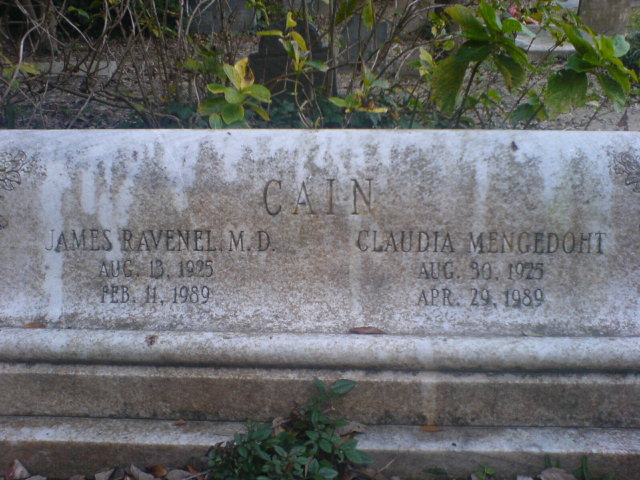Trinity of Sin
First, at the head of the list is the sin of Pride. According to “Common Sense” by Thomas Paine, a revolutionary leader,
Some writers have explained the English constitution thus; the king, say they, is one, the people another; the peers are an house in behalf of the king; the commons in behalf of the people; but this hath all the distinctions of an house divided against itself; and though the expressions be pleasantly arranged, yet when examined they appear idle and ambiguous; and it will always happen, that the nicest construction that words are capable of, when applied to the description of something which either cannot exist, or is too incomprehensible to be within the compass of description, will be words of sound only, and though they may amuse the ear, they cannot inform the mind, for this explanation includes a previous question, viz. how came the king by a Power which the people are afraid to trust, and always obliged to check? Such a power could not be the gift of a wise people, neither can any power, which needs checking, be from God; yet the provision, which the constitution makes, supposes such a power to exist.
Were not these words a form of arrogance, backed by Enlightenment principle, and a direct stab at the established hierarchy that, in former times, was declared to be ordained by God? The revolution was based primarily on Enlightenment thought, or the Age of Reason as we know it today. The revolution was dressed with a veneer of religious jargon, but weren’t these “founding fathers” seeking to overthrow what happened to be the most Republican government in the world, primarily out of a desire for rebellious autonomy, self-interested vanity, and the desire to be accountable to none other than their own consciences? According to Gordon S. Wood in his book “The Americanization of Benjamin Franklin”, Franklin in June 1788 wrote of the Confederation Congress,
their ideas so different, their prejudices so strong and so various, and their particular interests independent of the general, seeming so opposite, that not a move can be made that is not contested.
Was this not a struggling to the top of the heap by men like John Adams, Henry Lee, and Alexander Hamilton? From Franklin’s perspective, the process by which the thirteen colonies became a nation seems more Darwinian than egalitarian, and full of self-interested swindlers waging a war of words (and bullets) against each other and against a Patriarch whom they viewed to be a despot in need of obfuscation, not obeisance. These words from John Adams shed an even brighter light upon this dismal scene,
Here, again, we are to be conjured out of our senses by the magic in the words "British empire," and "supreme power of the state." But, however it may sound, I say we are not a part of the British empire; because the British government is not an empire. The governments of France, Spain, &c. are not empires, but monarchies, supposed to be governed by fixed fundamental laws, though not really. The British government is still less entitled to the style of an empire. It is a limited monarchy. If Aristotle, Livy, and Harrington knew what a republic was, the British constitution is much more like a republic than an empire.
Adams sets himself up as both judge and lawyer to an established system of government. He quotes Livy and Aristotle, both advocates of the landed elite and who, at least in the person of Livy, worked for an established empire which had not only a benevolent and vigorous emperor, but a functioning Senate as well. Also, like Livy, Adams seemed to have a propensity for vainglory and Romantic idealism; both attributable to a prideful nature.
Secondly, I propose that the American Revolution was based on the sin of Anger. The account available of the Boston Massacre preceding the Revolution is very revealing of the mentality held by the colonists of Boston at the time. It states at the beginning,
THE FIFTH DAY OF MARCH, 1770, BY SOLDIERS OF THE TWENTY-NINTH REGIMENT WHICH WITH THE FOURTEENTH REGIMENT WERE THEN QUARTERED THERE; WITH SOME OBSERVATIONS ON THE STATE OF THINGS PRIOR TO THAT CATASTROPHE.
The account goes on to produce a number of rumors and hearsay collected from several Bostonians, but no information from the side of the soldiers and their commander is available. The account mentions that the “massacre” occurred because of a conflict between a soldier and a local rope maker, and then escalated with the soldiers being repulsed by the humble citizens of Boston (with snowballs nonetheless) until in a fit of rage the soldiers opened fire, killing several persons and maiming a few. The account is also rendered anonymously, lending credence to the probability that it contained exaggerations and outright fallacies. This type of propaganda is common when a pre-existing tone of resentment exists among a people on the eve of Revolution. Nothing is mentioned in the account of threats made against the soldiers and their commander, but it does reveal some important information in its retelling of other firearms involved in the massacre. According to this anonymous source,
There are depositions in this affair which mention, that several guns were fired at the same time from the Custom-house; before which this shocking scene was exhibited. Into this matter inquisition is now making. In the meantime it may be proper to insert here the substance of some of those depositions.
The anonymous source doesn’t give any other information as regarding the outcome of these other depositions, once again obscuring fact for one-sided fiction in an attempt to make propaganda out of an isolated incident, lending more weight to the reality of motives rooted in Anger based on wounded Pride and my next topic, Greed.
Finally, a few words of “common sense” from Soame Jenyns, a member of parliament and a minor poet whose works are now “all but forgotten”:
The libery of an Englishman, is a phrase of so various a signification, having within these few years been used as a synonymous term for blasphemy, bawdy, treason, libels, strong beer, and cyder, that I shall not here presume to define its meaning; but I shall venture to assert what it cannot mean; that is, an exemption from taxes imposed by the authority of the Parliament of Great Britain; nor is there any charter, that ever pretended to grant such a privilege to any colony in America; and had they granted it, it could have had no force; their charters heing derived from the Crown, and no charter from the Crown can possibly supersede the right of the whole legislature: their charters are undoubtedly no more than those of all corporations, which impower them to make byelaws, and raise duties for the purposes of their own police, for ever subject to the superior authority of parliament; and in some of their charters, the manner of exercising these powers is specified in these express words, ‘according to the course of other corporations in Great-Britain’: and therefore they can have no more pretence to plead an exemption from this parliamentary authority, than any other corporation in England.
This powerful statement all but lays waste to the naked greed and self interest exhibited by the colonists with their cries of “taxation without representation”, and the lofty, but avaricious language associated with the “protection of property” espoused by the founding fathers. In almost every primary source available from the period preceding the Revolution, statements may be found regarding the oppressive taxation imposed upon the colonists by the mother country, but were not these taxes to be borne by all in the British Empire? Were the colonists so proud and “enlightened” that they no longer need bear the burden of the administration of the empire along with their fellow subjects in England? Also, who stood most to profit by a rupture with the mother country? Was it the common colonial soldier who bled and died on the battlefield, or was it the landed gentry such as Thomas Jefferson and George Washington, or up and coming Federalist money-grubbers such as Alexander Hamilton? Mr. Jenyns likens the colonies to separate and distinct “corporations”. This statement is made manifest in the words of another “founding father” of sorts, President Calvin Coolidge, when he made the remark, “The business of America is business.”
In conclusion, I would like to say that I am a patriot and a loyal citizen of the United States of America, in spite of the faulty structure upon which it was founded. I vote, I pay taxes, and I go to football games all under the watchful, if not completely benevolent gaze of Uncle Sam. The American Revolution made possible more than a nation comprised of prideful, atom bomb wielding, avaricious flag wavers. The Revolution also made possible all the good things about America as we know it today. The unsung, but highly virtuous heroes who go to work in furniture factories, steel mills, courtrooms and colleges who are the backbone of this glorious nation are the ones who truly make it great. The people whose ancestors bled and died on the battlefields of Saratoga and Savannah or Bunker Hill and Brandywine, or even those who came to the United States after its birth in crowded steamers, wide-eyed and garrulous with a glee that can only be found in the young and the free. Let us not forget those too, who came to the “Land of the Free” as captives in the holds of Portugese, English, and Spanish slave ships, destined for a life of thankless toil without payment on the rice and indigo plantations of South Carolina, or the fields of the vice crop, tobacco, in Virginia. These are the people who still protect and benefit from the principles upon which this country was founded, regardless of the motives for their conception. The business of America may still be business, but it is also to guard and nurture the millions of families who comprise the Great Experiment that is still going on today between the borders of Canada and Mexico, and in the northern reaches of Alaska and the sultry, verdant islands of Hawaii. Although possessed of less than competent leadership at times, The United States of America will continue to be a haven for the oppressed so long as we as a nation hold true to the governing principles set down by the founding fathers, who were, in effect, only human and guided by virtue as well as vice, and valiant selflessness as well as stubborn vanity.
Bibliography
Thomas Paine, Common Sense. Found at: http://odur.let.rug.nl/~usa/D/1776-1800/paine/CM/sensexx.htm
John Adams, Novanglus. Found at: http://odur.let.rug.nl/~usa/P/ja2/writings/novan1.htm
Anonymous Account of the Boston Massacre. Found at: http://odur.let.rug.nl/~usa/D/1751-1775/bostonmassacre/anon.htm




No comments:
Post a Comment